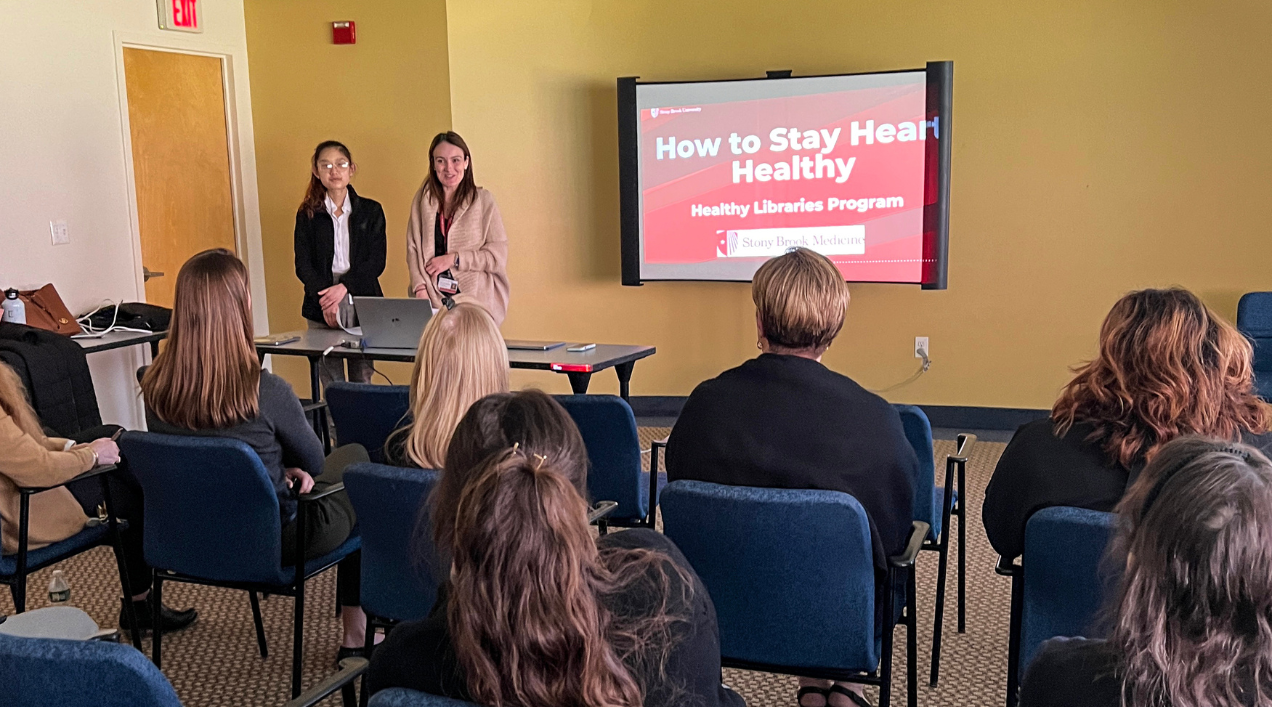Cynthia and BreeAnna, two dietetic interns from Stony Brook University, dropped by to lend their expertise on heart health for our latest TRITEC University workshop. This workshop covered a variety of information, including the risk factors for heart disease, the importance of exercise, and tips for maintaining a healthy diet and lifestyle. The interns presented evidence-based facts and shared practical advice on how to make small lifestyle changes that can have a big impact on heart health. Here are our five key takeaways from this workshop:
- Although you cannot change your predisposed risks for heart disease, you can make lifestyle changes to lower your risk.
Heart disease is the leading cause of death worldwide, and understanding how to maintain heart health is crucial for maintaining a healthy lifestyle. Risk factors include lifestyle choices, genetics, and environmental factors. By understanding the ways that you can lower your risk of disease, you can take steps to prevent or manage this condition.
- Cholesterol is a necessary substance for our health, but there is a big difference between the two main types of cholesterol.
Cholesterol is a fatty substance that can build up in the arteries and cause heart disease. There are two main types of cholesterol: LDL cholesterol (the “bad” cholesterol) and HDL cholesterol (the “good” cholesterol). LDL cholesterol can clog arteries and increase the risk of heart disease, while HDL cholesterol helps remove cholesterol from the bloodstream and reduces the risk of heart disease.
- You can practice mindful eating by using MyPlate.
We discussed the importance of a balanced diet for heart health. MyPlate is a tool that can help individuals plan meals that include all of the necessary food groups in the right proportions. By focusing on fruits, vegetables, whole grains, lean protein, and low-fat dairy, you can ensure that they are getting the nutrients they need to maintain a healthy diet.
- Nutrition labels can provide you with the tools to help you make better dietary choices.
Reading nutrition labels is an important skill for anyone who wants to make informed dietary choices. The intern provided tips for understanding nutrition labels, including paying attention to serving sizes, checking for saturated fats, and looking for nutrient-dense foods.
- Regular physical activity has major benefits for heart health.
Finally, the interns emphasized the importance of physical activity for heart health. Regular exercise can help reduce the risk of heart disease by improving cardiovascular health, reducing blood pressure, and maintaining a healthy weight. The intern encouraged individuals to find activities that they enjoy and make exercise a regular part of their routine.

